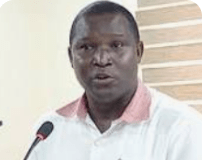Civil Society Organisations (CSOs) operating in the mining sector have called on the government to integrate free, prior, and informed consent (FPIC), resource allocation policies in the extractive sector, into the country’s legal frameworks.
The CEOs including A Rocha Ghana, Wassa Association of Communities Affected by Mining (WACAM), and the Center for Public Interest Law (CEPIL), emphasised the urgent need for the government to integrate FPIC into Ghana’s mining policy to guarantee adequate and just compensation for original landowners.
The CSOs hold the view that the land acquisition in Ghana for extractive purposes needs drastic reform as compulsory land acquisition policies usually leave mining communities unfairly deprived of their rightful entitlement.
The stakeholders at a public forum on protecting property rights, deliberated on free, prior, and informed consent (FPIC), resource allocation in the extractive sector, and the legal frameworks governing land acquisition in Ghana.
FPIC is a principle that upholds the right of indigenous people to either approve or reject any project that affects their land, territories, or rights.
Other key topics of discussion included ensuring fair compensation, strengthening environmental sustainability, and adopting a more inclusive approach to land and resource management.
The forum was held in line with Article 20 of the 1992 Constitution of Ghana, which safeguards individuals from the deprivation of property without due process and fair compensation.
It also referenced section two of the Minerals and Mining Act, 2006 (Act 703), which grants the President authority to acquire land for mineral development.
Deputy National Director of A Rocha Ghana, Daryl Bosu, stressed the long-term consequences of compulsory land acquisition on affected communities highlighting that losing ancestral lands impacts future generations, stripping them of their cultural heritage and economic opportunities.
“There is a generational effect when land is forcefully taken away. Future communities lose land rights and cultural access that have existed for centuries,” Mr Bosu stated.
Associate Executive Director of WACAM, Hannah Owusu-Koranteng, criticized the use of eminent domain in the mining sector, calling it unlawful and coercive.
She raised concerns over reports of state agencies, police, and military personnel forcibly evicting communities without proper land acquisition procedures.
“We have witnessed instances where authorities manipulate and coerce people into giving up their land almost for free. This is an injustice that must be addressed,” she asserted.
A major concern raised at the forum was the potential environmental damage from large-scale land acquisitions.
Residents of Jomoro in the Western Nzema Traditional Area expressed fears that a 20,000-hectare project could destroy the area’s ecological value.
Acting CEO of the Petroleum Hub, Dr. Tony Aubynn, acknowledged these concerns and attributed them to a lack of proper engagement with affected communities.
“The fear stems from inadequate communication. We must engage local people effectively and assure them that their environment will be safeguarded,” he said.
The Executive Director of the Center for Public Interest Law (CEPIL), Augustine Niber, reiterated the necessity of legal justification in government-led land takeovers.
He referenced Article 257(6) of the Constitution and Section 73(1) of Act 703, which mandate fair compensation for those whose property is acquired by the state.
The forum, organized by A Rocha Ghana, WACAM, CEPIL, and other partners, was held under the theme: “Rethinking Compulsory Land Acquisition and FPIC in the Extractive Sector: Ensuring Equity, Environmental Sustainability, and Inclusive Development.”
Attendees included traditional and community leaders from mining regions, civil society organizations, and key players in the extractive industry.
Speakers at the event included Daryl Bosu, Hannah Owusu-Koranteng, human rights lawyer Oliver Barker-Vormawor, and Dr. Tony Aubynn.
The discussions reinforced the urgent need for policy reforms to protect communities, ensure fair compensation, and promote sustainable land-use practices in Ghana’s extractive sector.










